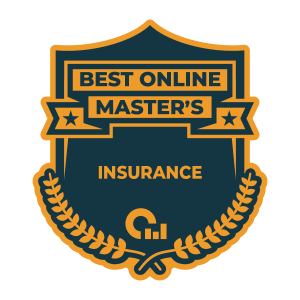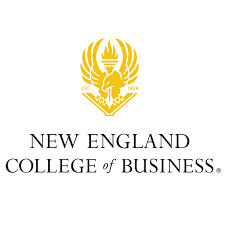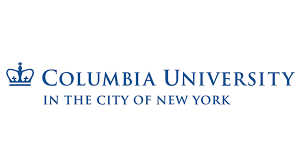Take your insurance career to the next level by earning one of the best online master’s in risk management and insurance.

If you’re already enjoying a rewarding career in the insurance industry or risk management industry but want to explore challenges and opportunities that can maximize your earning potential, you may want to consider adding a master’s degree to your resume.
The universities listed below can help you integrate e-commerce, technology, and business continuity to expand your career in today’s ever-changing insurance arena. Keep reading to see if an online master’s degree in insurance could be the strategic next step for you.
What is an Online Insurance Master Degree?
An online master’s in risk management and insurance may also be organized to include business management, insurance management, and risk management coursework. Individuals with an insurance masters degree such as this can work for insurance companies as consultants. They can also become business actuaries. Some professionals work in risk management and assessment for local, state, or federal government agencies.
Online master’s programs in insurance promote and develop existing expertise. They help you learn how to analyze the finance costs of risks and uncertainty. The career path you take offers many choices with a master’s degree. It could include working as a forensic accountant or auditor, underwriter, or statistician. Other options include employment as an economic policymaker or a mathematician.
The requirements of a masters in insurance and risk management vary from one program to the next. For example, one program might require 36 credits to graduate, which might take two years to complete if studying full-time (18 credits per academic year), whereas another program might require 35 credits, which would take an additional semester to complete.
The specific courses you take will vary somewhat as well, but there are some common classes you can except to take, including:
- Fundamentals of Risk and Insurance
- Data Analytics
- Insurance Accounting and Finance
- Personal Financial Planning
Furthermore, many masters in insurance and risk management online require coursework in alternative risk financing, business conditions analysis, and employee benefits. You might also study enterprise risk management, actuarial science, and international business. Business administration, financial risk, and risk analysis courses are common as well.
Since graduate programs are specialist programs of study, your courses will be much more focused on your major than your undergraduate studies were. Classes are more detailed and in depth, and you will likely conduct more research and undertake more experiential learning activities than you did in your undergraduate studies. For example, you might focus on:
- Risk management in real estate
- The insurance market
- Reinsurance
In some cases, you might find that certain online masters in risk management and insurance degrees require you to participate in practicum or internship experiences. While these experiences can be intense and stressful, they represent a good opportunity to get real-world on-the-job experience. It’s one thing to learn about risk management and insurance in a classroom, but it’s another thing to see the principles of this discipline carried out in a day-to-day work setting where decision making and critical thinking is crucially important.
Many programs in this field also require a capstone project. This type of experiential learning serves as a summative assessment at the end of your program. Capstone projects involve a lot of research and writing, and you present your findings to a committee, much like defending a master’s thesis.
See Also: 30 Great Economics Degree Scholarships
Your Master’s Program Should Be Accredited
Something to consider when looking for an online master’s program in insurance and risk management is whether the program is accredited or not. Accreditation ensures that a school provides the highest-quality education to graduate students (and undergraduates, too). It’s a voluntary process, yet a rigorous one that includes site visits from experts who can speak to the quality of the academics in a program.
In this field, getting a degree from a regionally-accredited institution is critical, as it can ensure that your credits will transfer, should you wish to move schools, and that you can sit for professional examinations, which often require a degree from a regionally-accredited school. The other common type of accreditation – national accreditation – is not as prestigious, though it is a valid type of accreditation.
But, if you begin your studies at a nationally-accredited school, the chances are good that the credits will not transfer to a regionally-accredited school. A major reason for this is because regional accreditation is far more rigorous than national accreditation.
Additionally, the school of business you choose to attend should be accredited by AACSB International. There are more than 900 AACSB-accredited schools around the world, and more than 150,000 industry professionals are part of AACSB. It is one of the leading organizations involved in overseeing insurance education programs.
How Much Can You Earn With an Online Master’s Degree in Insurance?
A masters in risk management and insurance online can apply to numerous occupations, so the potential earnings will vary. That said, pursuing a job as an economist, actuary, mathematician, or statistician can provide the most benefit with this extended degree.
According to the U.S. Bureau of Labor Statistics (BLS), economists made a median salary of $105,630 in 2022, while mathematicians and statisticians earned a median salary of $108,100 annually. It was also reported that with the extended degree, actuaries with professional designations can earn a median wage that is around $105,900 annually. Actuaries typically analyze the financial costs of risk and uncertainty.
Clearly, there is tremendous earning potential in this field, and a masters in risk management online is a great way to position yourself to tap into that earning potential. Your level of experience is certainly a factor in how much you earn, but so too is your level of education. In the vast majority of cases, someone with a master’s degree in their field will earn a larger salary than someone with just a bachelor’s degree.
Where you work can also influence the money you’re able to make. For example, if you work for a large, national insurance agency, it stands to reason that you would probably make more money than if you worked for small insurance agency in a rural area. Likewise, government careers for people with experience in risk management and insurance can be quite lucrative. For example, government-employed actuaries make $110,590 per year, while actuaries that work in management roles earn a median yearly salary of $101,510. In both cases, you get excellent pay. But there’s still a big difference between the amounts.
See Also: Business Degree Salaries: 30 Highest Paying Jobs
What is Required For an Online Master’s Degree in Insurance?
Obtaining an online masters in risk management or insurance typically requires a four-year bachelor’s degree in a related field first. Related fields might include mathematics or statistics. But, if your degree is not in one of these fields or another related field, you might still be admitted to the program on a provisional basis. This gives you time to complete prerequisite coursework that’s critical to your success in the master’s program.
The application process for the best online master degree programs might include the following requirements:
- Satisfactory scores on the Graduate Record Exam (GRE) or other college admissions exams
- A satisfactory undergraduate GPA
- A bachelor’s degree from an accredited institution
- Letters of recommendation from undergraduate professors
- A personal essay or statement of purpose
- An interview with the admissions committee
Every program handles admissions a little differently, but some combination of the above factors is likely to be part of the admissions process no matter what schools pique your interest.
As noted earlier, upon completion of a bachelor’s program, you will need to earn anywhere from 30-45 credits in an accredited master’s program to earn your degree. Two and a half years is the standard timeframe to get an online masters in risk management if you study full-time. However, online programs offer more flexibility than in-person programs, so you can extend or shorten that time to meet your needs.
Additionally, if you have a Chartered Property Casualty Underwriters (CPCU ® ) credential, you can decrease the course hours required for most insurance master’s programs.
See Also: Best Insurance Degrees Online
What Are the Best Online Master’s Degrees in Insurance?
Online Schools Report (OSR) uses six data points to rank the top risk management and insurance master’s degrees. There are three school-wide and three program-specific criteria. For school-wide, OSR uses Student Satisfaction, Admission Rates, and the number of programs the school offers online. For program-specific, OSR checks the Median Debt of graduates from that program, how many degrees are offered within that program’s umbrella department, and what percentage of students at that school graduated from that department.
The six statistics are displayed by each school. The sliding bar under each statistic represents how that school compares to other institutions in the United States. “Not reported” means a school did not release that information to the US Department of Education. A more detailed description of the OSR process can be found on the methodology page.
Rather than Googling, “masters risk management online,” let’s explore some of the best online master degree in risk management programs in one neat and tidy place – our rankings!
See Also: Are you interested in what the jobs of the future might be? Consult our list of the best college majors for the future to find out!










